Although it may be a thrilling and fulfilling endeavor, starting a business can also be quite difficult. Drop shipping is one of the most well-liked ways to dabble in entrepreneurship without having to make a sizable initial expenditure. However, what if you could go one step further and establish your brand? Private label dropshipping fills that need.
In this guide, we’ll explore how to start dropshipping with private label, providing you with practical tips and insights to set you on the path to success. Let’s get started!
Introduction to Dropshipping
A retail fulfillment technique called dropshipping allows an online shop to send products without keeping inventories. Instead, when a store sells anything, it purchases it immediately from a third party and sends it directly to the customer. This indicates that the goods are not handled directly by the vendor.
Dropshipping frees up business owners to concentrate on marketing and customer support by eliminating the need to handle inventory and transportation. Because this approach takes less cash to get started, it is especially appealing to those who are new to e-commerce.
Advantages
Dropshipping is a popular choice among entrepreneurs since it provides several advantages. First off, because you don’t have to pay for inventory upfront, it offers cheap beginning costs. It also offers freedom because you may operate your company from any location with an internet connection. Thirdly, logistics of shipping and inventory management are not a concern.
Challenges
Dropshipping does, however, have several drawbacks. Reliability of suppliers is essential since order fulfillment mistakes or delays can damage your company’s image. In addition, profit margins could be less than in other retail formats, and competition might be strong. You may start your dropshipping business with more informed judgments if you are aware of these benefits and difficulties.
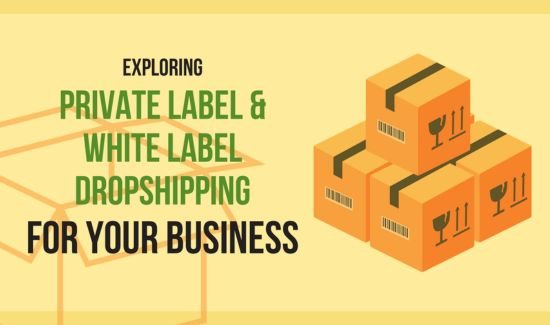
Understanding Private Label Dropshipping
Dropshipping under your brand but using another company’s manufacturing is known as a private label. With private label dropshipping, as opposed to regular dropshipping, you may produce and market goods that are exclusive to your company. Compared to white-label items, which are generic as well but can be rebranded by many merchants, this strategy is distinct.
Advantages for Entrepreneurs
First of all, it gives you more control over product quality and branding, enabling you to carve out a distinct niche for yourself in the market. Second, because branded goods frequently fetch higher prices, it may result in larger profit margins. Thirdly, because people are more inclined to trust and patronize a brand they are familiar with, it fosters customer loyalty.
Step-by-Step Guide to Start Dropshipping with Private Label
Below is an explanation of each step to start dropshipping with a private label.

I. Choosing Your Niche and Products
Your private-label dropshipping business’s success depends on your selection of items and specialty. To comprehend current trends and customer preferences, do in-depth market research. To determine popular items and market demands, use resources such as Google Trends, social media platforms, and keyword research tools.
Identifying Profitable Niches
A successful niche must be chosen by taking into account variables including profit margins, competition, and market demand. Search for markets where there is a lot of demand but little competition to increase your chances of success. You may more successfully target your marketing efforts and build a devoted consumer base by choosing the appropriate niche.
If you want to find a winning product for dropshipping then read this article: How To Find Winning Products for Dropshipping.
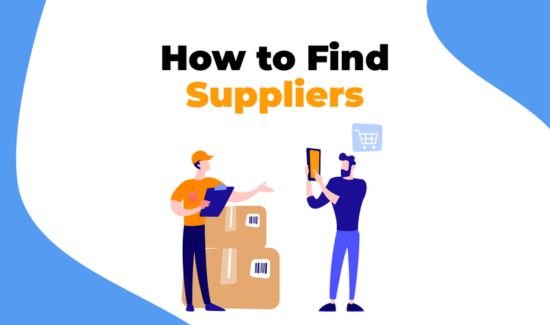
2. Finding Reliable Suppliers
For your private-label dropshipping business to succeed, you must locate trustworthy suppliers. When selecting suppliers, take into account important aspects including product quality, cost, delivery schedules, and communication. To guarantee seamless operations, it’s critical to have effective communication channels and cultivate a solid rapport with your suppliers.
Platforms for Finding Private Label Suppliers
You may locate trustworthy private label providers on several sites, such as Oberlo, Alibaba, and AliExpress. These marketplaces provide a large selection of goods and vendors, which facilitates the process of selecting the best fit for your company. Examine the reviews, ratings, and response times of potential vendors.

3. Building Your Brand
To stand out in the crowded dropshipping market, a strong brand is essential. A clearly defined brand builds consumer loyalty and leaves a lasting impression. Establishing a unified brand identity over all platforms, such as your website, social media accounts, and packaging, contributes to increasing consumer identification and confidence.
Strategies for Creating a Unique Brand
A recognizable brand name and logo, eye-catching packaging, and a smooth unpacking experience are all essential to building a distinctive brand. Concentrate on components that speak to your target demographic and represent the ideals of your brand. If necessary, spend money on expert design services to make sure your brand is seen in the marketplace.
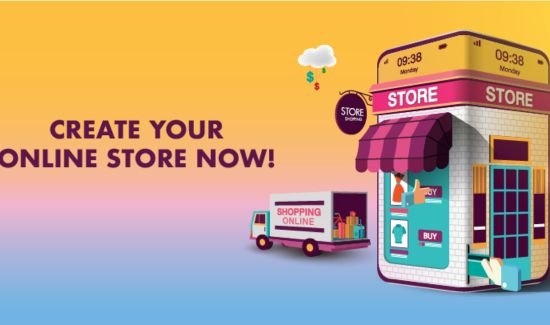
4. Setting Up Your Online Store
The success of your online business depends on your choice of e-commerce platform. Well-known systems with a variety of features and functions to help your business include BigCommerce, WooCommerce, and Shopify. When selecting a platform, take into account elements like integration capabilities, customization possibilities, and simplicity of use.
Design and Functionality Tips
To turn visitors into buyers, you must create an online store that is both aesthetically pleasing and easy to use. Pay close attention to mobile optimization, quick load speeds, and clear, user-friendly design. Make sure your website is simple to use, with distinct product categories and thorough descriptions. Invest in top-notch photos and videos to properly present your items.
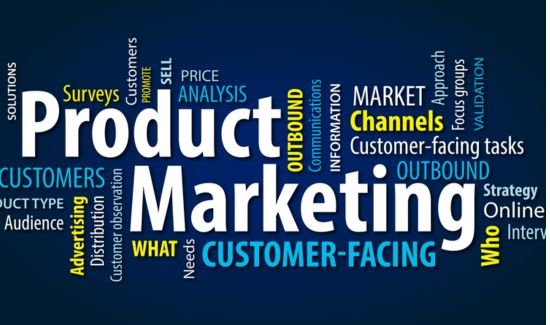
5. Marketing Your Products
Driving traffic and revenue to your private label dropshipping business requires effective marketing. To reach your target audience, make use of digital marketing techniques like email marketing, PPC, and SEO. Invest in blogging and content marketing to build your brand as an authority in the field and to offer insightful material.
Leveraging Social Media and Influencer Marketing
Social media sites are excellent resources for audience engagement and product promotion. To attract potential clients, provide engaging content and make use of tailored advertisements. Work together with influencers to increase your visibility and establish trust. You may increase sales and generate talk about your company by utilizing influencer marketing and social media.

6. Managing Your Dropshipping Business
Although running a dropshipping company can be time-consuming, automation solutions can help you organize and simplify a number of your business’s processes. Automate processes like order processing, inventory management, and shipment with the use of programs like Oberlo, Dropified, and ShipStation. By automating tasks, you can focus on expanding your company while saving time and lowering the possibility of mistakes.
Customer Service and Support
Providing top-notch customer service is essential to earning your clients’ confidence and loyalty. Establish procedures to deal with refunds, returns, and questions in a timely and effective manner. To handle customer care and guarantee that your clients have a great experience, use platforms such as Zendesk and Freshdesk. Making customer service a top priority can help you build a devoted clientele and encourage repeat business.
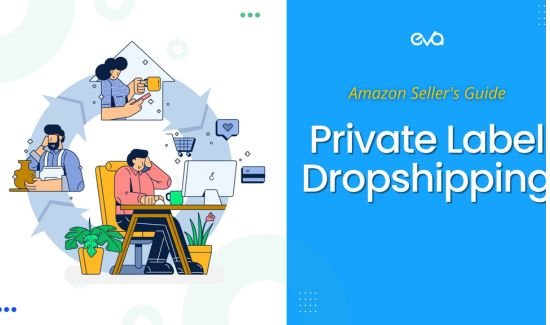
Five Best-Selling Dropshipping Products with Private Label
1: Organic Skincare Products
In the beauty market, organic skincare products are quite popular. This is a lucrative area since consumers are looking for natural and eco-friendly options more and more. Organic skincare goods sold under private labels, such as face masks, moisturizers, and serums, may be customized with your packaging and logo. Their popularity is a result of people being more conscious of the dangerous ingredients found in traditional skincare products.
2: Fitness Supplements
Supplements for fitness are among the best-selling items in the burgeoning health and wellness sector. Pre-workout pills, multivitamins, and protein powders are examples of private-label products. These goods are preferred among fitness enthusiasts due to their effectiveness and convenience. Putting your label on them can help you get the trust of clients who value fitness and wellness.
3: Home Decor Items
Candles, pillows, and wall art are among the most popular home décor products. Because these items are easily customizable to reflect different aesthetics and styles, they present a wonderful chance for private labeling. Customers who like to customize their living spaces might be drawn to your business by providing distinctive and fashionable designs.
4: Eco-Friendly Kitchenware
With the increasing acceptance of sustainable living, eco-friendly equipment including silicone food storage bags, bamboo utensils, and reusable straws is becoming more and more popular. By private labeling these goods, you may reach consumers who are concerned about the environment.
5: Tech Accessories
Headphones, chargers, and phone covers are examples of tech accessories that are constantly in great demand. By using private labeling, you may differentiate your items from generic alternatives with stylish designs and cutting-edge functionality. Tech-savvy buyers are prepared to shell out more money for accessories that match their gadgets and express their style.
Conclusion
Establishing a successful and satisfying private-label dropshipping company is possible. You may successfully establish and run your company according to this thorough guide, which covers everything from selecting the best suppliers and niches to promoting your goods and offering top-notch customer support. It takes time and work to build a successful dropshipping business, but you may succeed as an entrepreneur if you have the correct tools and methods.
Ready to take the plunge? Start your private label dropshipping journey today and watch your business grow. Happy dropshipping! Hope that this blog helps you explore dropshipping with private labels.
If you want to start dropshipping on eBay then read this article: The Ultimate Guide to Starting eBay Dropshipping in Pakistan.
FAQs
How much does it cost to start a private label dropshipping business?
A few examples of the variables that affect the price include supplier fees, marketing costs, and product selection. Budgeting is usually required for things like product samples, branding expenses, website development, and continuing marketing campaigns. A few hundred to a few thousand dollars may be the initial outlay.
Do I need to have my website to start private label dropshipping?
Having a website is not required, but it may greatly improve consumer satisfaction and the legitimacy of your company. Setting up an online store with your branding is simple using platforms like Shopify, WooCommerce, or BigCommerce.
Can I dropship products internationally?
Yes, the majority of dropshipping private label companies provide worldwide delivery. Shipping schedules, rules on customs, and other expenses, however, should be considered as they might have an impact on your pricing strategy and client happiness.
How long does it take to see a profit from private-label dropshipping?
The length of time it takes to become profitable varies depending on things like marketing efficacy, competition, and market demand. While some business owners can realize profits in as little as a few months, others would need more time. Maintaining long-term success requires perseverance and constant work.

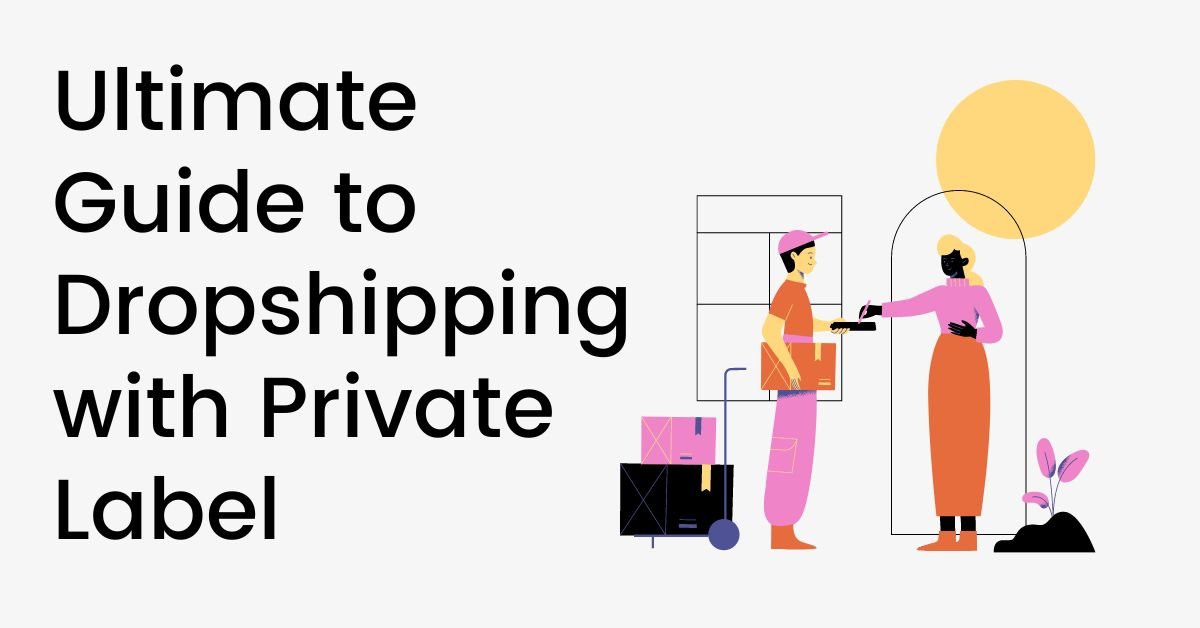
1 thought on “Ultimate Guide to Dropshipping with Private Label”